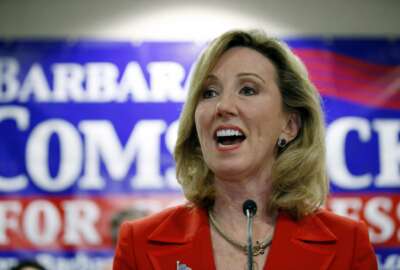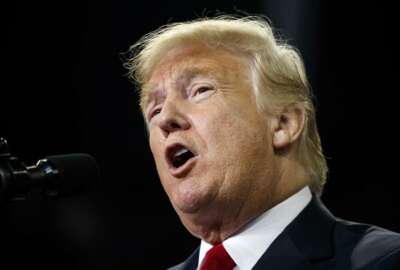
DC area Democrats urge congressional leaders to take up Senate’s federal pay raise
A coalition of House Democrats from the District of Columbia, Maryland and Virginia are calling on congressional leadership to change course on the president's...
The president’s planned pay freeze for civilian federal employees next year is earning more criticism from some members Congress.
House Democrats in the District of Columbia, Maryland and Virginia said they’re rejecting the president’s plans to cancel a statutorily-set 2.1 percent pay raise for civilian employees in 2019. They’re urging congressional leadership to at least take on the Senate’s proposed 1.9 percent pay raise next year.
A delegation of Democrats from the Washington metropolitan area has written to House Speaker Paul Ryan (R-Wis.), House Minority Leader Nancy Pelosi (D-Calif.), Senate Majority Leader Mitch McConnell (R-Ky.) and Senate Minority Leader Chuck Schumer (D-N.Y.).
“It is beyond cynical that the president would cite economic and fiscal concerns to justify his decision to cancel a pay adjustment for middle class workers while he tweets constantly about economic gains and touts a tax bill that exploded the deficit by $1.5 trillion.” the delegation said in Wednesday’s letter to congressional leaders.
The delegation includes House Minority Whip Steny Hoyer (D-Md.), along with Maryland Democratic Reps. Anthony Brown, John Delaney, Jamie Raskin and John Sarbanes, D.C. Del. Eleanor Holmes Norton and Virginia Reps. Don Beyer and Gerry Connolly.
“The men and women of the federal workforce are the same hardworking Americans we honored on Labor Day in communities across the country,” lawmakers said. “We urge you to recognize their dedicated service to our nation with a minimum pay adjustment of 1.9 percent, as already endorsed by an overwhelmingly bipartisan vote in the Senate.”
They’re not the first members of Congress to speak out against the president’s planned pay freeze. Rep. Barbara Comstock (R-Va.) wrote to President Donald Trump last week, asking that he reconsider the pay freeze.
Comstock said she would work with her House colleagues through the appropriations process. The full Senate has already passed a 1.9 percent raise as part of its financial services and general government appropriations bill.
The House version of the financial services appropriations bill makes no mention of federal pay, meaning both chambers will have to conference over the issue in the coming weeks.
Trump has chosen to deviate away from the statutorily-set formula that typically dictates federal pay raises for a given year. According to that formula, most federal employees would have received an average of a 2.1 percent raise in 2019, plus additional locality pay increases, which average 25.7 percent and cost roughly $25 billion in total, Trump said.
Unless Congress acts, the president’s latest announcement essentially means that civilian employees would continue to get the same rate-of-pay in 2019 that they receive this year.
Congress could also change the president’s course and pass stand-alone legislation on federal pay, but this would be unlikely. Connolly and Sen. Brian Schatz (D-Hawaii) have again re-introduced the Federal Adjustment of Income Rates (FAIR) Act in January. The bill calls for a 3 percent raise for federal employees next year.
Copyright © 2025 Federal News Network. All rights reserved. This website is not intended for users located within the European Economic Area.
Nicole Ogrysko is a reporter for Federal News Network focusing on the federal workforce and federal pay and benefits.
Follow @nogryskoWFED





